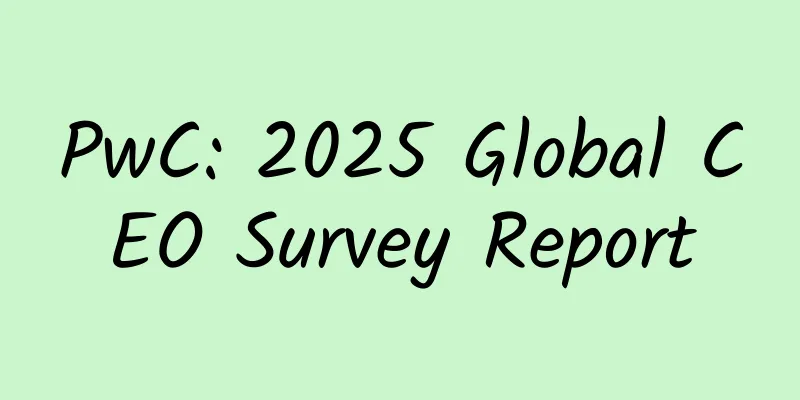PwC: 2025 Global CEO Survey Report

|
PricewaterhouseCoopers (PwC)’s 28th annual Global CEO Survey interviewed 4,701 CEOs from all regions around the world. Some CEOs are moving quickly to seize the growth and value creation potential inherent in the defining forces of our time. They are investing in generative artificial intelligence (GenAI), addressing the opportunities and threats of climate change, and redesigning their operations and business models to create value in new ways. Many other CEOs are moving slowly, constrained by leadership mindsets and processes that lead to inertia. The latter have two choices: either accelerate their reinvention efforts or hope that by making some minor tweaks to existing operations and business models, these models will continue to deliver results even as AI and the transition to a low-carbon economy drive value flows across the economy. Key findings: Expectations for generative artificial intelligence (GenAI) remain high: one-third of CEOs say GenAI has increased revenue and profitability in the past year, and half expect their investments in the technology to increase profits in the next year. Trust remains a barrier to adoption. Climate action and sustainability investments are paying off: One-third of CEOs report that environmental investments made over the past five years have resulted in higher revenues, while two-thirds say these investments have either reduced costs or had no significant cost impact. Industry boundaries are blurring: Nearly 40% of CEOs say their companies have begun competing in new industries in the past five years. Consistent with last year’s survey, 4 in 10 CEOs believe their companies will no longer be viable in 10 years if they continue on their current path. The pace of reinvention is slow: On average, only 7% of revenues over the past five years came from unique new businesses that the company added during that period. Barriers to reinvention include weak decision-making processes, low levels of year-to-year reallocation of resources, and a mismatch between the short-term tenure expectations of many CEOs and powerful long-term forces or megatrends. The tension between time spans CEOs are optimistic about the short-term outlook, even as they worry about their companies’ long-term viability. Nearly 60% of CEOs expect global economic growth to accelerate over the next 12 months, up from 38% in last year’s survey and 18% two years ago. CEOs expect to increase rather than decrease headcount over the next year by a margin of more than 2:1 (42% vs. 17%). The document link will be shared to 199IT Knowledge Planet. Scan the QR code below to view it! |
Recommend
Brother Suoniu-Practical Course on Making Sure Money from IPOs in Hong Kong Stocks
Friends often ask me what is the really good way t...
Have you encountered these pitfalls of being cheated by mini programs?
I heard from someone that if you have experience ...
How did WeChat Mini Programs achieve over 100 million users?
Q: How did WeChat Mini Program achieve over 100 m...
MIUI head Hong Feng tells you why MIUI7 is like this
After Xiaomi's press conference on August 13,...
Tencent emphasizes the difference between WeChat and Wechat
Tencent Chief Financial Officer Luo Shouhan said ...
Taobao Live is not a panacea!
At the end of last year, I was still attending va...
How to achieve user growth? 5 key points!
In the post- mobile Internet era, whether it is a...
Teach you how to write high-quality brainwashing copy
"I won't accept any gifts this year, but...
In today's world where content is king, here are nine rules for successful content marketing!
In today's world where content is king, many ...
Without channel traffic tracking and analysis, no matter how much money you spend on APP promotion, it will be in vain!
Local promotion is an effective way for App to ac...
Searching for “MOSS” in the real world (Part 3): The “first front” in the quantum computing race
Produced by: Science Popularization China Author:...
Talking about iOS large-scale project development
[[147407]] The title is a bit scary, please don&#...
This is how Sina Weibo, Didi, and Momo acquired accurate seed users in the early days of their establishment!
Sina Weibo, Didi, and Momo now have tens of milli...
APP user operations: attract new users, promote activation, and gain return traffic!
I have shared many times how to develop the mobil...
![[Smart Farmers] Subvert the impression! This kind of "working" bees can also reproduce offspring](/upload/images/67f217109cedb.webp)








